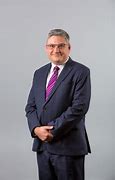Future Fund shifts toward hedge funds
31 Aug 2022 - News

The Future Fund shifted its focus toward alternative strategies − especially macro hedge funds − in response to changing economic conditions over the 2021-22 financial year.
Chief executive Dr Raphael Arndt said the fund’s return of -1.2% for the year – a year in which equites had fallen 7% − showed the fund had successfully navigated volatile conditions, particularly toward the end of the year.
Moving early to change strategy in anticipation of rising inflation had achieved the objective of preserving the sovereign wealth fund's capital. With $194 billion in funds under management at the end of June, the fund was $4 billion better off than it would have been if it had not begun its strategic shift in anticipation of central banks tightening interest rates. There was, however, no end in sight to volatility and since June the total assets value had dipped lower and recovered.
Commenting on 31 August, in the fund’s end of financial year portfolio update, Arndt said: “Last year we commenced a three-year program of repositioning the Future Fund portfolio. This will adjust for a climate of higher inflation, increased volatility, and lower returns. The work has set us up well. The portfolio has done well in the context of market weakness and, while investment returns face many headwinds, we are well positioned to identify and access attractive new investment opportunities.
“The fund has benefited from an increased allocation to alternatives where inflation-aware strategies have performed strongly.
“We are continuing our work to reposition the portfolio. To be successful at delivering investment performance in a higher inflation world, we need to keep innovating and finding new ways of doing things.
“In a low-return environment, the value of skilled investment managers is only increasing. We are focused on identifying and taking advantage of our managers’ skill, and on finding new talent to work with, so that we can add additional return or reduce risk.
“The portfolio continues to be positioned moderately below a neutral risk setting.”
As at 30 June, listed equities represented 28.5% of the fund, down from 35.8% a year earlier. Alternatives, mainly hedge funds, were the second largest allocation at 17.8%, overtaking private equity (including venture capital) at 17.2%, down slightly from 17.5% a year earlier.
The proportion of the fund invested in private markets (including property and infrastructure & timberland) and had increased, Arndt said, but competition for private markets deals had also become stronger.
Arndt said he expected changed market conditions to result in a significant shake-out among fund managers especially in private equity and venture capital.
Except for a blip in 2020 caused by the COVID-19 pandemic, it had been easy for private equity and venture capital fund managers to make money over the last ten years but that was now changing as the cost of debt was rising and recessions or near recession were likely in many markets globally. He expected a shake-out of fund managers, particularly among newer managers that had only experienced “sailing with the wind at our back”.
He said the Future Fund did not expect the managers it allocated to would be affected by this shake-out as it focused on well credentialed managers with demonstrated skills at adding value. Many of these relationships had been established for 15 years but the fund was also looking to establish relationships with new skilled managers and these would be easier to identify in the more competitive environment.
Chairman of the Future Fund Board of Guardians Peter Costello AC said: “In financial year 2021 the Future Fund delivered a record return of 22.2% spurred by a period of exceptional stimulation through monetary and fiscal policy. Not unexpectedly, we now have significant global and domestic inflation. Central banks are responding by tightening policy and it is likely that further interest rates rises will be needed to achieve their inflation objectives. We expect deglobalisation, geopolitical tensions, trade barriers and high inflation to be a feature of the investment climate going forward.
“The Future Fund is a long-term fund; it was created to strengthen the Commonwealth’s long-term financial position. The fund continues to achieve this objective with a 10-year return of 9.7% per annum against a target of 6.6%.
“The Future Fund stands at $194 billion. Earnings have added $134 billion since the fund was created.
“In this environment, it is more important than ever that the board remains sharply focused on its long-term objective to maximise risk-adjusted returns while taking acceptable, but not excessive, levels of risk.”
Image: Future Fund chief executive Dr Raphael Arndt.

